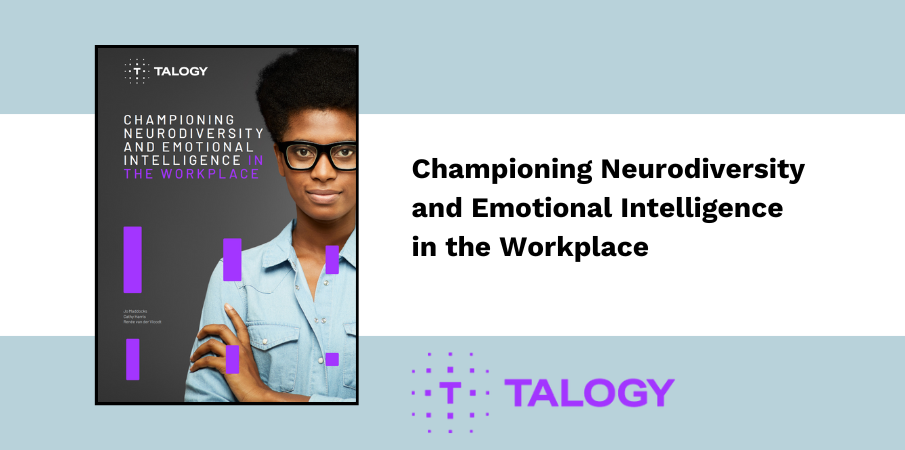Neurodiversity is a term that many of us in the corporate world are becoming familiar with. But what is neurodiversity, and why is an understanding of how to nurture the broad spectrum of talents associated with non-typical thinking styles, so crucial for organisational effectiveness?
In this paper, Talogy aim to shed light on these questions, by bringing together three different, but complementary perspectives on supporting the development of those who fall within this grouping:
Jo Maddocks, Chief Psychologist at Talogy, shares a case study on how an Emotional Intelligence-based development programme deployed within the STEM (science, technology, engineering, and mathematics) sector, with a high representation of neurodivergent participants, resulted in significant improvements in participants’ perceptions of their own personal and interpersonal intelligence and capabilities.
Psychotherapist and coach, Renée van der Vloodt describes the challenges neurodivergent employees may face in organisational life and how these can negatively impact wellbeing.
Cathy Harris, an executive coach and mental health specialist at Keychange Coaching, highlights the importance of creating a workplace climate which allows those with different gifts to flourish. Both Cathy and Renée emphasise the importance of helping all employees to cultivate skills in emotional self-regulation as well as healthy coping strategies.
Download the free whitepaper now
"*" indicates required fields


